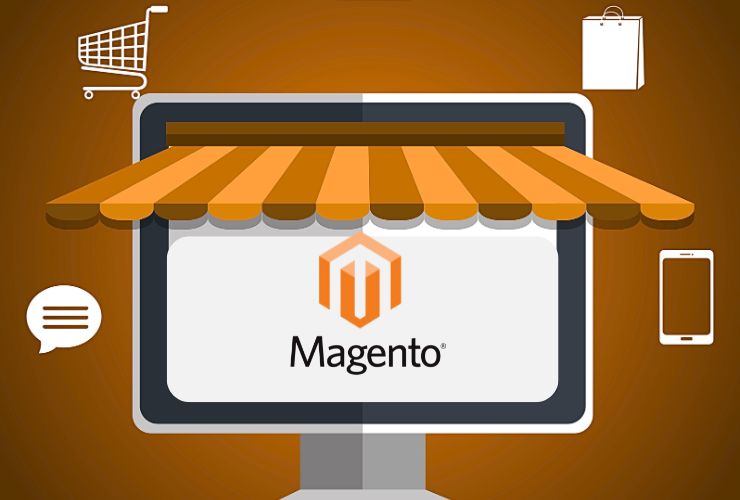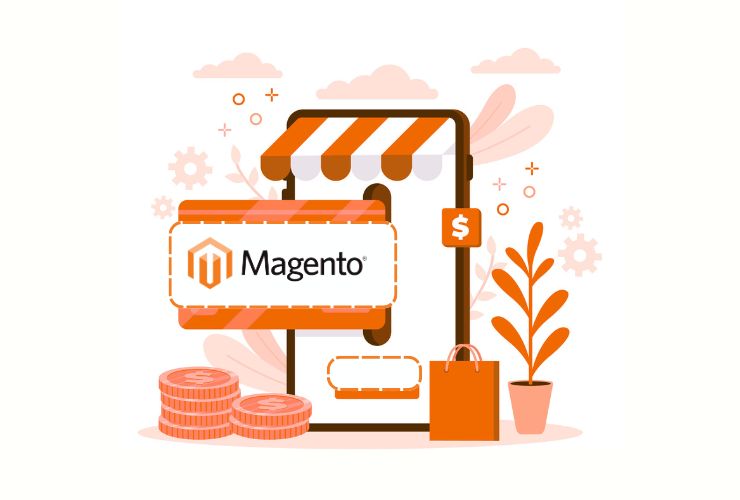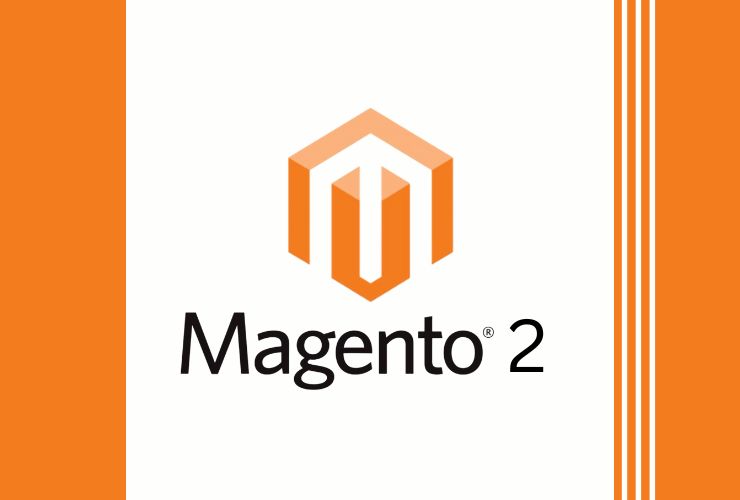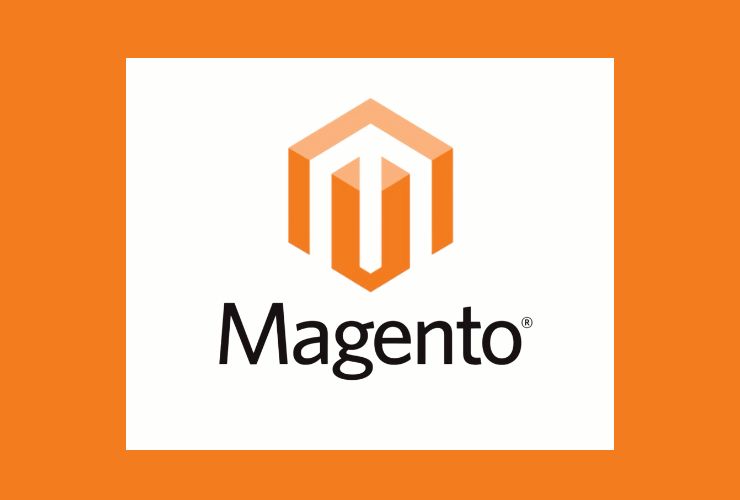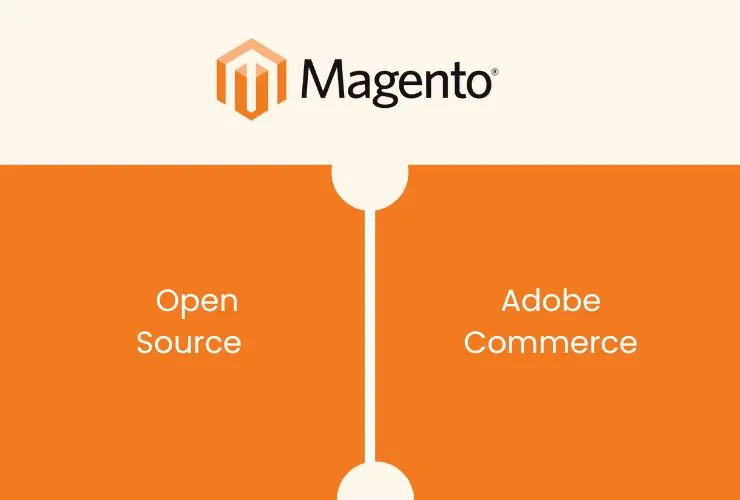As you start to scale your online business, one of the most important decisions you’ll make is which e-commerce platform you should choose. The right e-commerce platform will form the foundation for how you manage products, provide customer experiences, implement new tools and integrate globally. Many platforms compete in this space, and Magento stands out as the go-to choice for brands seeking power, flexibility, and scalability. But the real question remains: Is Magento the right fit for your growing e-commerce business?
Why Magento?
Magento is now part of Adobe’s umbrella, but Magento has a long and robust history of being one of the most powerful, complex and advanced open-source e-commerce platforms available today. The Magento platform is serving businesses ranging from start-ups with scalable ambitions to enterprise-class businesses with various complexities.
What sets Magento apart from many other platforms is the depth of customization possible, performance for scale, and choice of features. Unlike many out-of-the-box e-commerce platforms, Magento gives programmers, developers, and growing businesses complete autonomy to customize the platform to match their specific business model and customer experience.
Essential Capabilities That Accelerate Expansion
A fundamental component of Magento’s advantages is its expansion capacity and capability to handle complexity. Below are excellent examples that allow firms experiencing growth to maximize a pace of significant expansion:
Sophisticated Product Management
Magento lets you manage extensive product catalogs with ease. Whether you’re selling simple products, configurable items, bundles, virtual goods, or downloads, Magento handles attributes, categories, and bulk updates efficiently. This helps your product managers scale operations without creating unnecessary or cumbersome workflows.
Multi-Store and Multi-Language
Magento’s multi-store capability is tremendous for any firm to expand internationally, or into different brand names. It allows multiple storefronts to be managed with separate domain names, languages and currency specifically for a country or region from one back-end interface. This decreases friction of operations and supports international expansion for any accommodation.
Embedded Marketing Capabilities
Marketing and promotional tools sit at the core of the platform. Each of the marketing tools, including discounts, coupon codes, tiered pricing, upsells, and cross-sells help to direct and mobilize buyers to engage thoroughly into your brands for the expectation of increasing average order values and repeat buys without needing to re-engage or incorporate with third-party plugins.
SEO Optimization
Magento was built for SEO. The platform allows you access to meta, URL, sitemap, and canonical information. Clean code and mobile optimization help your store rank higher and gain more visibility in search engines, especially as competition grows.
Preparedness for Third-Party Integrations!
Magento integrates with just about every major CRM, ERP, shipping and logistics solution, marketing automation tool, and payment gateway that keeps a retailer’s e-commerce business connected, agile, and scalable.
Is Magento Right for Your Business?
Magento is not a fit for everyone. It is powerful, but you will need to commit a certain level of technical resources or hire a developer to fully realize its potential. Here’s how to decide if Magento is suitable for your expansion objectives.
Magento fits well if your business manages a growing product catalog, needs customization, or targets international markets. It’s especially suited for businesses expanding into B2B or multi-channel operations that demand complex logic, pricing models, or workflows.
Conversely, if your business has very limited technical resources or you’re looking for a simple plug & play solution, then Magento probably isn’t the best fit. If you’re a small team with no developers to work with and your business model is relatively simple, you can probably get to market more quickly, and with lower maintenance requirements, using Shopify or BigCommerce.
Cost Considerations
Magento is available in two main versions: Magento Open Source, and Adobe Commerce (formerly Magento Commerce).
On one hand, Magento Open Source is free to download and use. This is desirable for companies that have internal development resources. However, you will still need to consider hosting, development, maintenance, and security update costs.
Adobe Commerce is the enterprise version of Magento that includes a licensing fee, but comes with advanced features such as customer segmentation, B2B capabilities, advanced analytics, and cloud infrastructure. If you have a growing business that is scaling rapidly, or requires enterprise-level features and support, it is generally worth the investment.
Wrap-Up
Magento provides a great set of features for scaling e-commerce businesses. The systems scalability, flexibility, and ecosystem make Magento a unique platform for businesses that have a list of requirements and have long-term growth and development plans. However, these benefits come with a learning curve and resource dependencies, all of which require careful deliberation.
If your business is development-ready, and you have a trusted partner or have unlocked some technical development bandwidth, then you can use the Magento platform to build your own truly customizable and future-proof online store. With proper planning and execution, Magento is more than a platform; it is an ecosystem for digital commerce success.
Grow Your eCommerce Business with Magento
Empirical Edge helps businesses build scalable and high-performance Magento stores tailored for growing eCommerce needs.
Frequently Asked Questions
Magento is an eCommerce platform used to build scalable online stores with advanced features like product management, SEO tools, and custom integrations.
Yes, Magento is ideal for growing businesses because it can handle large product catalogs and increasing customer traffic efficiently.
Businesses choose Magento for its flexibility, customization options, and ability to support complex online stores.
Yes, Magento includes built-in SEO features such as customizable URLs, meta tags, and sitemaps to improve search rankings.
Magento is best suited for medium to large businesses that need scalable and customizable eCommerce solutions.






